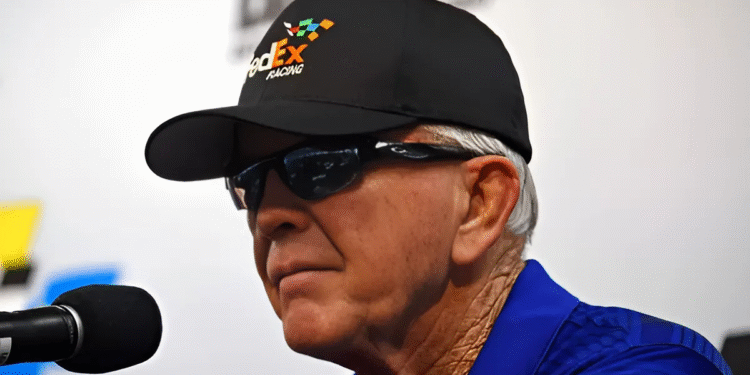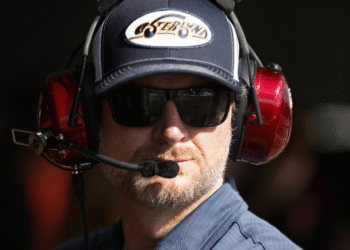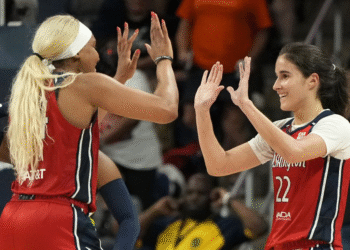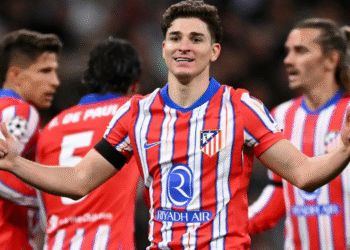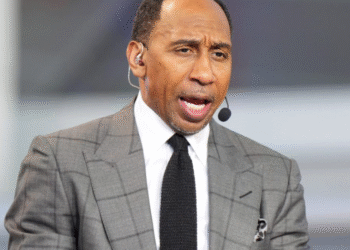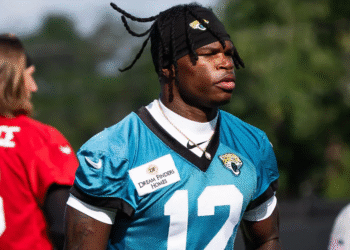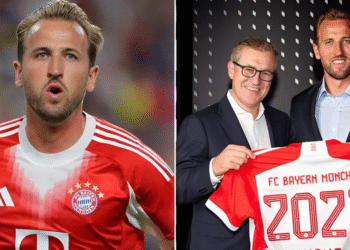NASCAR garage that goes beyond engine noise and pit strategy. One of Joe Gibbs Racing’s top drivers has stepped up with a heartfelt message directed at the sport’s wealthiest decision-makers—NASCAR’s billionaire partners. The driver isn’t just talking about improving lap times or chasing trophies. He’s asking for something much deeper: a return to the core values that once made NASCAR the heartbeat of American motorsports.
In an open and honest moment that’s now circulating heavily across social media and racing forums, the JGR driver called on influential team owners, track investors, and media moguls to stop and reflect. His plea wasn’t loaded with anger, but it was filled with urgency. The message was clear—somewhere along the way, NASCAR might have lost touch with what truly mattered: the fans, the competition, and the spirit of real racing.
While he didn’t take direct shots at any individuals, the subtext was easy to read. The growth of corporate influence, entertainment-style rule changes, and the slow drift away from grassroots racing have all played a role in reshaping NASCAR. The driver believes it’s time for the sport’s most powerful voices—the billionaire owners and business tycoons—to step in not just as investors, but as protectors of NASCAR’s legacy.
This isn’t the first time fans and drivers have spoken about their concerns, but what makes this different is the timing and tone. NASCAR is at a crossroads. Ratings are not what they used to be. Longtime fans often express frustration over changes in race formats, car designs, and even track selections. New fans are coming in, yes, but there’s an ongoing conversation about whether the sport has drifted too far from what made it unique in the first place.
The JGR driver, known for both his on-track aggression and off-track authenticity, talked about wanting to recapture the energy of NASCAR’s golden years. The time when rivalries were raw, racing was unpredictable, and fan loyalty ran deep. “We’re missing something,” he said. “And maybe it’s not just the racing product—it’s the passion, the connection.”
He didn’t pretend to have all the answers. But he made it clear that change would require more than tweaks in car design or flashy pre-race concerts. He wants the sport’s top investors to spend more time in the garage, talking to the teams, walking through the fan zones, and understanding what today’s loyal supporters are truly asking for.
His message may be aimed at billionaires, but it resonated with everyday race fans. Comments online poured in, praising his honesty and courage. Some suggested it was the kind of leadership NASCAR desperately needs—drivers willing to speak out not just about winning races, but about saving the sport itself.
Whether NASCAR’s big-money backers will respond is still a question. Many of them are deeply involved in the business side—TV deals, brand partnerships, facility upgrades. But this plea isn’t about money. It’s about heart. And for fans who’ve watched the sport change over the years, hearing a driver echo their sentiments felt like a turning point.
In the end, this JGR driver’s plea may not change everything overnight. But it has sparked conversation—one that could grow louder if more drivers, fans, and stakeholders step forward. The path to past glory isn’t just about looking back. It’s about remembering what made NASCAR thrive in the first place—and having the courage to bring it back.
